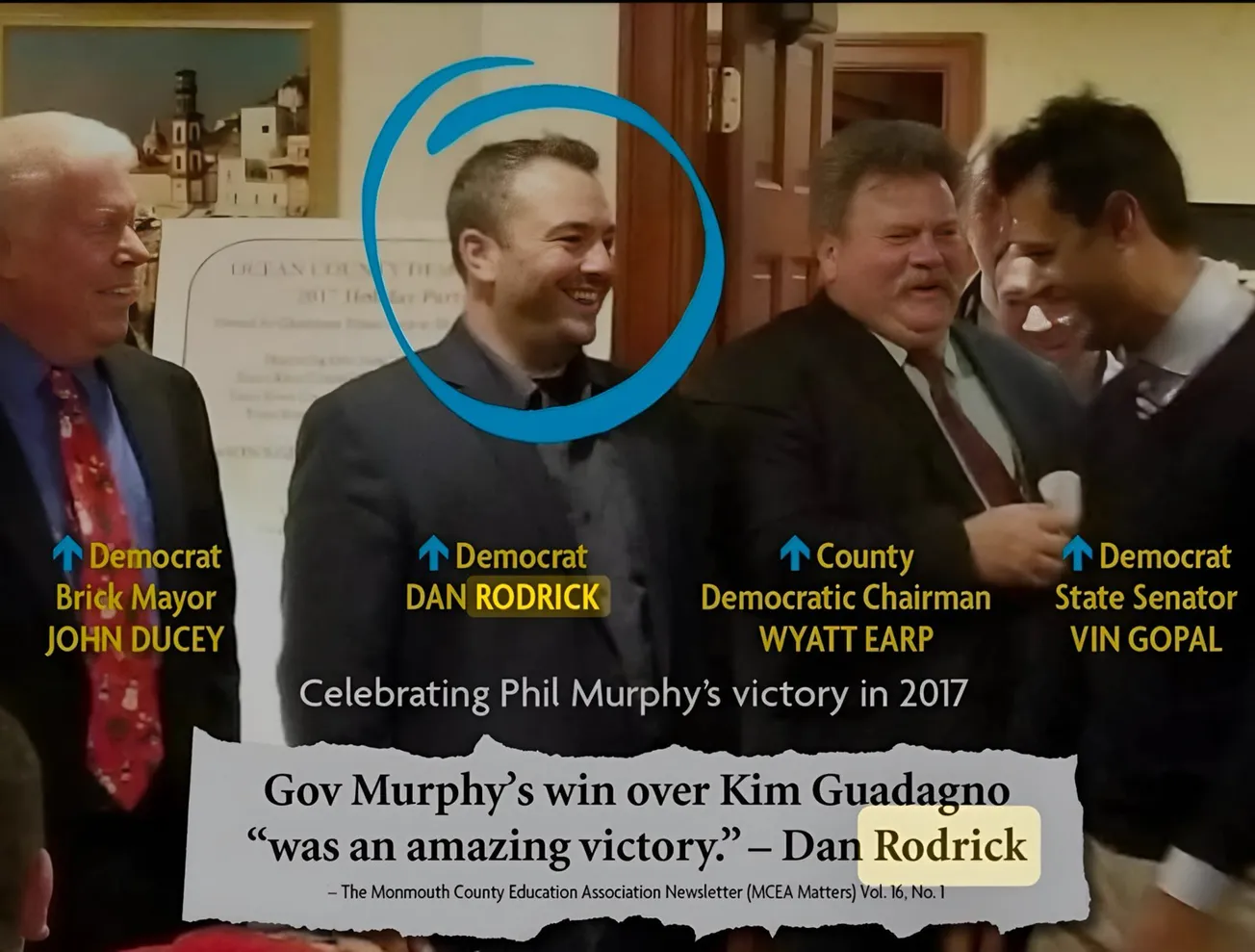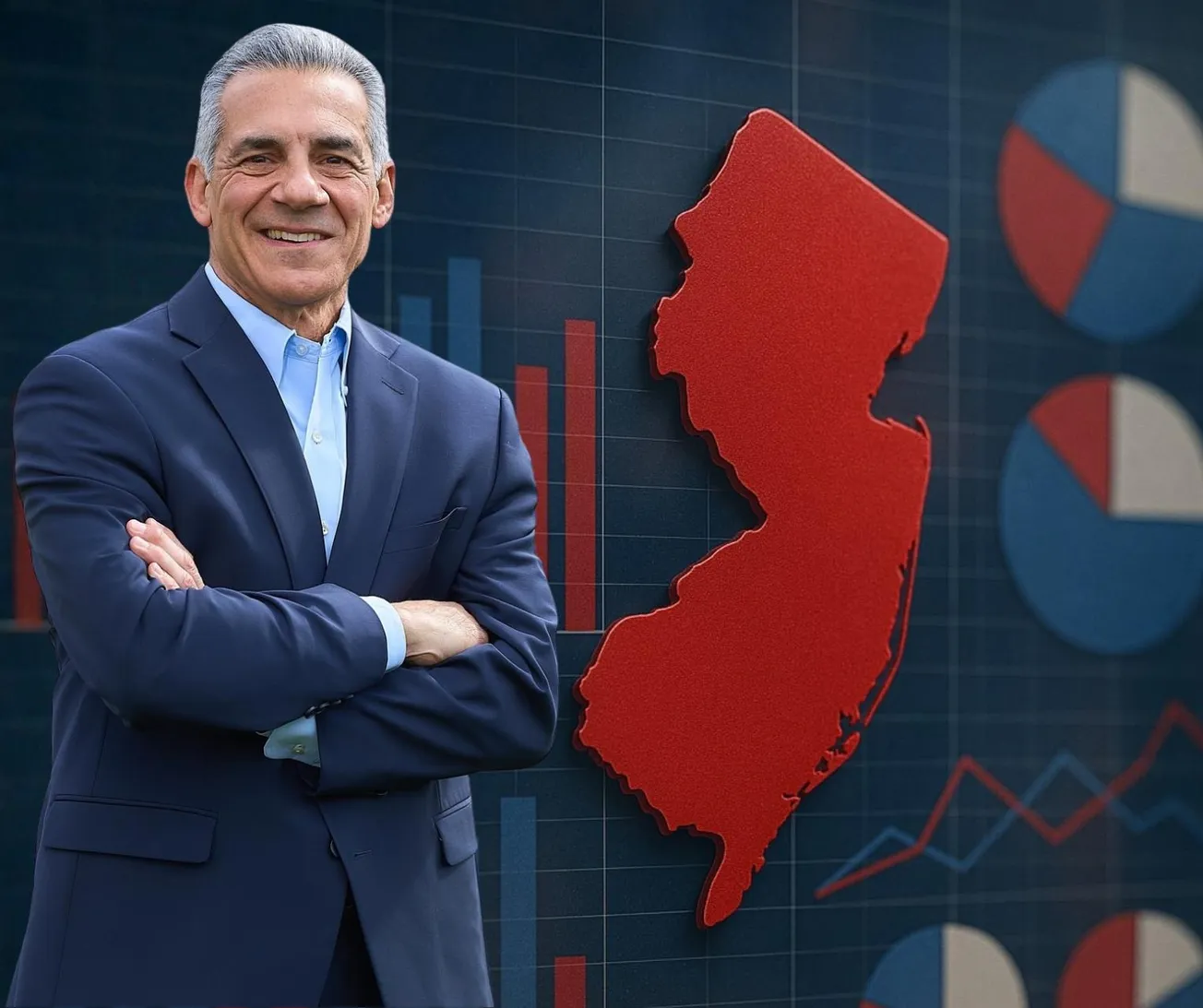TOMS RIVER, NJ — More than a year into his first term, Mayor Dan Rodrick’s administration is facing mounting scrutiny over a series of high-level municipal appointments that critics say conflict with his public image as a Republican reformer. Despite campaigning on promises to “drain the swamp,” Rodrick has filled key roles in Town Hall with Democratic operatives, political consultants, and longtime allies — many of whom were brought on without public posting or competitive vetting.
The hires have prompted renewed questions about the mayor’s political allegiances and administrative priorities.
From Democrat to Republican — and Back Again?
Rodrick’s political career began as a Democrat. In 2017, he lost the race for a seat on the Toms River Township Council with the support of prominent Democratic strategists. A year later, he made an unsuccessful bid to lead the Toms River Democratic Committee, losing to Ben Giovine by a narrow margin in a vote reportedly held in Rodrick’s own home.
Following the loss, Rodrick changed his party affiliation and ran as a Republican in future elections. Party leaders have expressed concern over his ties to Trenton Democrats and his history of aligning with liberal campaign operatives.

Political Allies Take Key Posts
One of Rodrick’s first appointments in 2024 was Jonathan Salonis, a former communications director for the Democratic mayor of Carteret. Salonis was named Director of Recreation, then quickly promoted to Business Administrator — the top unelected role in the municipality, responsible for overseeing day-to-day government operations, contracts, and staffing.
Salonis was not vetted through any public process. The job was not advertised, and no formal interview was conducted. Township records show no public notice or council vote prior to his appointment.
Also hired under Rodrick’s administration was Democratic campaign consultant Mitch Seim, known for his work on behalf of Brick Township Democrats including Mayor Lisa Crate and former Mayor John Ducey. Seim now serves in Toms River’s finance department.
The hires sparked a public response from within the Democratic Party. Paul Williams, a local Democratic committeeman, questioned the qualifications of both Salonis and Seim, calling their appointments politically motivated.
Rodrick’s involvement in local campaigns has also drawn attention. In 2024, he backed Bill Byrne in an off-year Township Council election. Byrne campaigned publicly as a Republican, appearing at GOP events and utilizing Republican campaign materials. However, voter registration records show that Byrne remained a registered Democrat for the majority of the race. He did not formally switch his party affiliation until just weeks before Election Day, timing the change to align with his appearance on the ballot. The discrepancy raised concerns among some residents and party officials, who questioned the transparency of the campaign and the accuracy of Byrne’s political representation.
In another controversial move, Rodrick’s administration brought on Phil Stilton, publisher of the politically charged website Shore News Network, to work inside the Township. Stilton’s outlet frequently ran favorable stories about Rodrick’s campaign and has been accused of attacking political opponents online.
Law Firm Ties Raise Further Questions
In February 2024, the Township awarded a legal services contract to Rainone Coughlin Minchello — a law firm closely tied to Assembly Speaker Craig Coughlin, one of New Jersey’s top Democrats. Coughlin has long been a major fundraiser and supporter of liberal candidates across the state.
While the nature of Rodrick’s relationship with the firm is unclear, the move raised eyebrows among local GOP figures who have remained skeptical of the mayor’s partisan loyalties.
No Public Process, No Public Input
Critics of the administration argue that the pattern of hiring political allies without transparency undermines public trust.
“These appointments weren’t made based on experience or merit,” said one former township official who requested anonymity to speak candidly. “They were made based on loyalty to the mayor — and that’s a problem.”
To date, the mayor’s office has not released resumes, application materials, or explanations regarding how the hires were made. Several residents have filed Open Public Records Act (OPRA) requests seeking documentation, with limited success.
A Shrinking Circle of Accountability
Despite branding himself as a conservative reformer, Rodrick’s governance has raised concerns across party lines about a growing culture of patronage and political favoritism.
“He told voters he’d clean up Town Hall,” said one resident during a recent council meeting. “Instead, he’s turned it into a clubhouse for his campaign team.”
As more administrative hires are made behind closed doors, questions persist about whether Rodrick’s administration serves the residents of Toms River — or the political network that helped him get elected.






